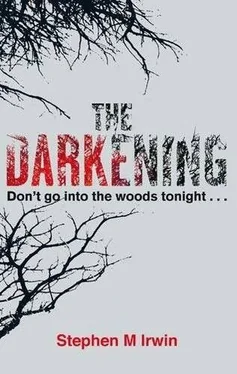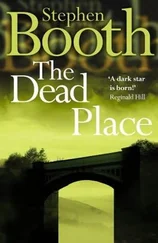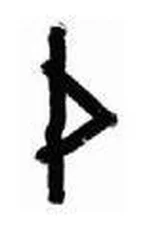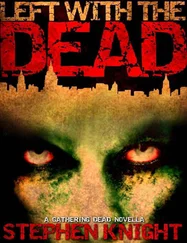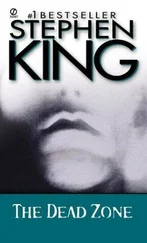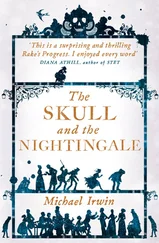Stephen Irwin - The Dead Path
Здесь есть возможность читать онлайн «Stephen Irwin - The Dead Path» весь текст электронной книги совершенно бесплатно (целиком полную версию без сокращений). В некоторых случаях можно слушать аудио, скачать через торрент в формате fb2 и присутствует краткое содержание. Жанр: Триллер, на английском языке. Описание произведения, (предисловие) а так же отзывы посетителей доступны на портале библиотеки ЛибКат.
- Название:The Dead Path
- Автор:
- Жанр:
- Год:неизвестен
- ISBN:нет данных
- Рейтинг книги:5 / 5. Голосов: 1
-
Избранное:Добавить в избранное
- Отзывы:
-
Ваша оценка:
- 100
- 1
- 2
- 3
- 4
- 5
The Dead Path: краткое содержание, описание и аннотация
Предлагаем к чтению аннотацию, описание, краткое содержание или предисловие (зависит от того, что написал сам автор книги «The Dead Path»). Если вы не нашли необходимую информацию о книге — напишите в комментариях, мы постараемся отыскать её.
The Dead Path — читать онлайн бесплатно полную книгу (весь текст) целиком
Ниже представлен текст книги, разбитый по страницам. Система сохранения места последней прочитанной страницы, позволяет с удобством читать онлайн бесплатно книгу «The Dead Path», без необходимости каждый раз заново искать на чём Вы остановились. Поставьте закладку, и сможете в любой момент перейти на страницу, на которой закончили чтение.
Интервал:
Закладка:
Nicholas pulled another name from the flyer and typed: “Surveyor, Raff, Patterson.” He bit his lip, then typed, “Funeral.”
He sipped water while the search bar filled.
The first photograph was unrelated-it showed the tombstone of a Glynnis Patterson from Toowoomba. But the second made Nicholas’s breath hiss in through clenched teeth. “Funeral Service for Elliot Raff, Surveyor, 1891, Henry Mohoupt, Undertaker.” The image was cracked, making the dull gray sky look fatally wounded. A crowd of mourners beside a horse-drawn hearse outside Pritam’s church. The trees were shorter and the dresses were fuller, but otherwise the photograph was almost identical to the one taken twenty years later. But, again, the church. Solid and brooding.
He sat back and rubbed his eyes. It was midday. The surrounding carrels were full. He looked outside. The river ran alongside the library, swollen and brown. Its opposite bank was laced tight with an expressway that ducked and weaved in and out of itself, feeding into a business district studded thickly with skyscrapers and office buildings. Bruise-blue clouds loitered discontentedly at the horizon.
Nicholas stretched his neck, trying to get all the new facts straight in his head. Auctioneers plan to sell the woods; each dies the same year. Surveyors plan to divide the woods; each dies the very year he plans to slice them up.
He turned back to the monitor and typed “Water pipe, construction.”
It took him ten minutes to reach the last, telling image. The caption didn’t surprise him: “August 3, 1928. Workers boycott construction of water pipeline through western suburbs following multiple fatalities.” The photograph showed a bullock team and an empty dray beside dislocated sections of three-meter-high pipe. Behind the dour men and lumpish oxen, the woods glowered. He skipped to the end of the text accompanying the photograph and read the words: “… the unpopular pipeline was diverted through a neighboring suburb.”
He reached into his satchel and pulled out Gavin’s cigarettes, slipped one into his mouth. A woman opposite leveled a scornful stare at him. The middle-aged man sitting next to him sent him a thundery look, then got up and walked away. Nicholas jiggled the cigarette in his mouth; the dry whisper of the filter on his lips was comforting. The woods had been unassailable. Auctioneers, subdividers, council pipes-something wanted no one in those woods. But the church… why did the church keep cropping up?
He typed “Anglican church,” then hesitated. He closed his eyes and concentrated. Standing outside the cold, mossy church in the rain, peering over at the marble cornerstone, reading the lead letters: “Dedicated to the Glory of God, 1888.” He typed the year. Search.
“The Right Reverend Nathaniel de Witt stands beside Mrs. Eleanor Bretherton who lays foundation stone for Tallong Anglican Church, 1888.” While the Reverend de Witt smiled, Bretherton looked at the camera with undisguised contempt. In one gloved hand, she held a guide rope attached to the heavy stone that was suspended by an overhead crane outside the frame. But it wasn’t her expression that held Nicholas’s stare. It was that he recognized her.
Eleanor Bretherton looked exactly like the old seamstress from Jay Jay’s haberdashery that he remembered from his childhood. The old woman who’d freaked out Suzette. Mrs. Quill.
It was impossible. Bretherton must be her grandmother or great-aunt. But those explanations rang hollow. Certainly, Nicholas was trusting memories twenty years old, but the similarity between Bretherton and Quill was uncanny.
Only the voice in his head said it was no coincidence.
He typed “Quill, Haberdasher.” Search.
“Search results: 0 hits.”
He thought a moment, then typed “Myrtle Street, Tallong,” hesitated, then, “shop.” Search.
His jaw tightened as he watched the search bar fill.
An old image appeared. “Sedgely Confectionery Shop, Myrtle Street, Tallong, c. 1905.” A solitary, timber-clad shop with a deep awning sat alone on the corner of unpaved Myrtle Street. Words painted in its windows proclaimed “Boiled sweets,” “Choicest Fruits of the Season,” and “Teas, Light Refreshments and Ices.” Nicholas peered. It was in the same place where the group of shops stood today-the convenience store, Rowena’s health food store, the computer repair shop. In front of the confectionery store stood a woman in a white dress. She must have turned away from the camera as the photograph was taken because her head and face were smoky and blurred. The caption read: “Possibly proprietress Victoria Sedgely.”
Nicholas’s mouth went dry as a crypt.
The woman in the photograph held in her arms a small, white terrier.
K atharine swore as the spinning clay collapsed in on itself and what was to have been a tureen folded into a damp, malformed thing that brought suddenly to mind a birthing film a nurse had shown her when she was pregnant with Nicholas-the folded, exhausted clay lips looked horribly like that film’s mother’s bloody vulva. Katharine ground the spinning wheel to a halt with the heel of her hand, scooped the aborted pot off, and pounded it into a ball that she slapped onto the block of clay at her feet.
Normally, a few hours in her under-house studio was distracting enough to wick away any vexed thoughts. Not today. She switched off the wheel with her toe. In the new quiet she could hear the steady patter of rain on the bushes outside the window. The day was dark. She rose and went to the tubs to wash the already drying patina of pale clay from her hands.
What would Don have said?
Katharine shut off the tap with an irritated twist. What would Don have said? “ Can you make that a double, love? ” she thought bitterly.
Ah. But the drinking came afterward. What did he say about Quill before all that?
Katharine dried her hands. She didn’t need to think about that. Don was long dead; dead, in a way, even before he died. Quill was long gone, too. Life was for the living.
“Stuff and nonsense,” she said to herself, and reached to switch off the light. The warm yellow of the tungsten bulb clicked off, leaving the room a dull aquarium slate; light swimming in through the window fell on the distorted lump of clay under clear plastic. It looked horribly like a broken head, and in Katharine’s mind appeared a vivid memory of Gavin Boye’s shattered face as a white plastic bag was zipped up around him. Yes, life was for the living, but the living were dying again. She closed the door and hurried upstairs.
The house was quiet. Even a week ago, returning to this silence would have been welcoming, a cocooning balm for her to luxuriate in, a private hush in which she could curl up, read a book, doodle designs on a sketchpad, stare idly out the window at the hibiscus. But today, the silence was eerie. The furtive whisper of the rain on the roof made it even more unnerving.
“Suzette?” she called. For a moment, she had the terrible feeling that her daughter was down at Myrtle Street with the greengrocer Pamela Ferguson and something bad was about to happen. Then she remembered Suzette was a grown woman now. She was in no danger.
“In here, Mum!” Suzette’s voice came from her old bedroom up the hall.
Katharine walked up and looked through the doorway. Suzette was leaning over an open suitcase that was half-packed. It was a sign of how effectively the Close women had been avoiding one another; Katharine had no idea her daughter was returning to Sydney today.
“Almost done?” she asked lightly.
“Almost,” agreed Suzette. “I’ll have to ring a cab. Black and White or Yellow?”
“They’re much of a muchness,” replied Katharine.
Suzette nodded.
“Your brother all right?” asked Katharine.
Читать дальшеИнтервал:
Закладка:
Похожие книги на «The Dead Path»
Представляем Вашему вниманию похожие книги на «The Dead Path» списком для выбора. Мы отобрали схожую по названию и смыслу литературу в надежде предоставить читателям больше вариантов отыскать новые, интересные, ещё непрочитанные произведения.
Обсуждение, отзывы о книге «The Dead Path» и просто собственные мнения читателей. Оставьте ваши комментарии, напишите, что Вы думаете о произведении, его смысле или главных героях. Укажите что конкретно понравилось, а что нет, и почему Вы так считаете.
